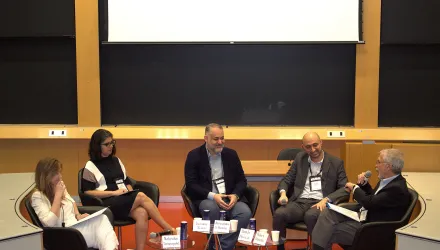Perspectives Series 2011: Progressing Towards Post-2012 Carbon Markets
Abstract
Why should anyone be interested in the national context of a state policy? In the case of California's Global Warming Solutions Act (AB 32), the answer flows directly from the very nature of the problem—global climate change, the ultimate global commons problem. Greenhouse gases (GHGs) uniformly mix in the atmosphere. Therefore, any jurisdiction taking action—whether a nation, a state, or a city—will incur the costs of its actions, but the benefits of its actions (reduced risk of climate-change damages) will be distributed globally. Hence, for virtually any jurisdiction, the benefits it reaps from its climate-policy actions will be less than the cost it incurs. This is despite the fact that the global benefits of action may well be greater—possibly much greater—than global costs.
This presents a classic free-rider problem, in which it is in the interest of each jurisdiction to wait for others to take action and benefit from their actions (that is, free-ride). This is the fundamental reason why the highest levels of effective government should be involved, that is, sovereign states (nations). And this is why international, if not global, cooperation is essential.
Despite this fundamental reality, there can still be a valuable role for subnational climate policies. Indeed, my purpose in this essay is to explore the potential for such state and regional policies—both in the presence of federal climate policy and in the absence of such policy. I begin by describing the national climate policy context and then turn to subnational policies, such as California's AB 32 and the Regional Greenhouse Gas Initiative (RGGI) in the Northeast. My focus is on how these subnational policies will interact with a federal climate policy. It turns out that some of the interactions will be problematic, others will be benign, and still others could be positive. I also examine the role that could be played by subnational policies in the absence of a meaningful federal policy, with the conclusion that—like it or not—we may find that Sacramento, California comes to take the place of Washington as the center of national climate policy.
Stavins, Robert N. “The National Context of U.S. State Policies for a Global Commons Problem.” UNEP Risoe Centre on Energy, Climate and Sustainable Development, November 2011
The full text of this publication is available via UNEP Risoe Centre on Energy, Climate and Sustainable Development.





